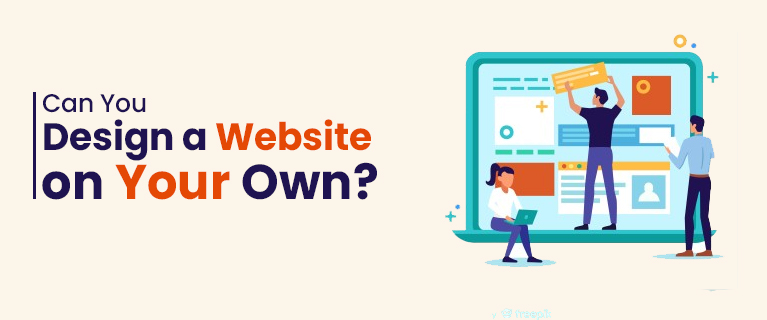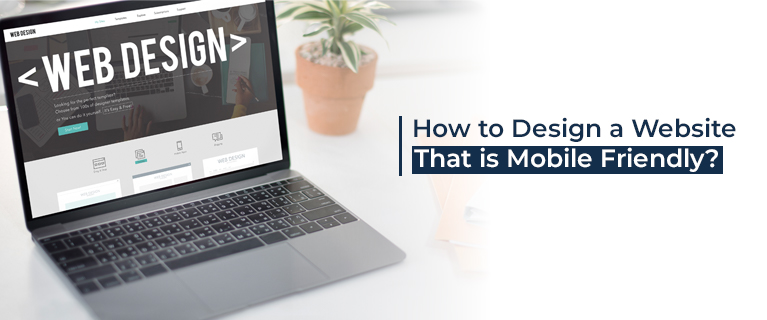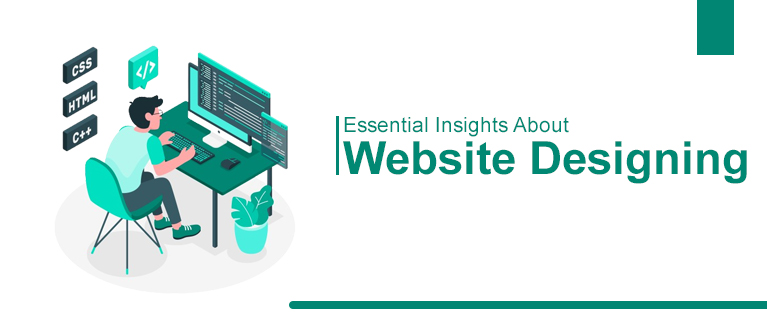Can You Design a Website on Your Own?
In the digital age, the allure of designing your own website has become increasingly tempting. With a plethora of user-friendly tools and online tutorials available, the prospect of becoming the mastermind behind your digital presence is more accessible than ever. However, before you embark on the DIY adventure, it's crucial to weigh the pros and cons, understanding that while solo efforts can be fulfilling, the guidance of professionals might just be the secret sauce for a smoother and more effective outcome.
The DIY of Designing a Website:
The rise of website builders and content management systems (CMS) has democratized web design. Platforms like Wix, WordPress, and Squarespace offer intuitive drag-and-drop interfaces, allowing even those without coding skills to piece together a website. This DIY approach empowers individuals to control every aspect of their site, from layout to content, without relying on external expertise.
Pros of DIY Website Designing:
1. Cost-Effective: One of the primary reasons individuals opt for the DIY website designing is cost savings. Many website builders offer free plans or affordable subscriptions, making it an attractive option for those on a tight budget.
2. Creative Control: DIY web design means you have complete creative control. You can experiment with various themes, layouts, and content until you achieve the exact look and feel you envision for your brand or personal space.
3. Flexibility and Speed: With DIY tools, you can launch a website relatively quickly. Templates and pre-designed elements streamline the process, allowing you to publish your site without waiting for a professional to complete the work.
Cons of DIY Website Designing:
1. Learning Curve: While these platforms are designed to be user-friendly, there is still a learning curve, especially if you are new to web design. Understanding the intricacies of design principles and the platform itself can be time-consuming.
2. Limitations in Customization: Despite the creative freedom offered by DIY tools, there are limitations to customization. Your website might end up looking generic, and achieving a truly unique and tailored website design may require advanced coding knowledge.
3. Potential Quality Compromise: In pursuit of simplicity, DIY platforms may sacrifice some technical aspects, leading to potential performance and SEO issues. Professionals are well-versed in optimizing these elements for a seamless online experience.
The Professional Touch of Website Designers:
In contrast, hiring a professional web designer or a web development agency brings a wealth of expertise to the table. These individuals are well-versed in the intricacies of design, user experience, and coding, ensuring your website not only looks great but also functions seamlessly.
Pros of Hiring Professionals:
1. Expertise and Experience: Web designers bring years of experience and expertise to the table. They understand design principles, user behaviour, and the technical aspects of web development, ensuring a polished and effective website.
2. Customization Without Limits: Professionals can create a website tailored to your exact specifications. From intricate design elements to unique functionalities, the possibilities are limitless when you have an experienced designer at the helm.
3. Time Efficiency: While DIY projects may take time to master, professionals can deliver results efficiently. This is crucial, especially for businesses or individuals with time-sensitive projects.
Cons of Hiring Professionals:
1. Cost Investment: The main deterrent for many is the cost associated with hiring professionals. Quality web design often comes at a price, and for those on a tight budget, this can be a significant factor.
2. Dependency on External Input: Relying on professionals means surrendering some control. While they will consult and incorporate your vision, you may not have the same level of hands-on control as with a DIY project.
Striking the Balance:
The decision between DIY and professional web design depends on various factors, including your budget, time constraints, and the complexity of your website's needs. Striking a balance is also a viable option. For instance, you might use a DIY tool to create the initial structure and design of your website and then bring in a professional for fine-tuning, optimization, and advanced features.
Conclusion
In the ever-expanding digital landscape, the choice to design your own website or hire a professional web development agency is a pivotal one. While the allure of DIY is undeniable, it's crucial to acknowledge its limitations and potential pitfalls. Hiring professionals may involve a financial investment, but it often pays off in terms of quality, efficiency, and a website that truly stands out in the crowded online space. Ultimately, whether you choose the DIY path or enlist professional help, the key is to embark on your website designing journey with a clear understanding of your goals, resources, and the importance of a strong digital presence.




Comments
Post a Comment